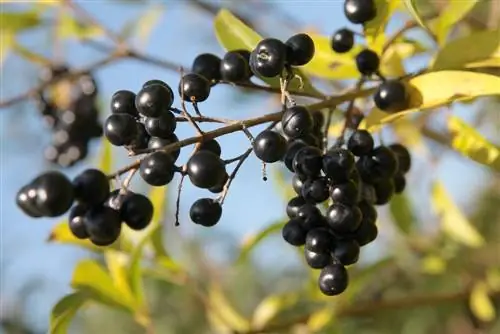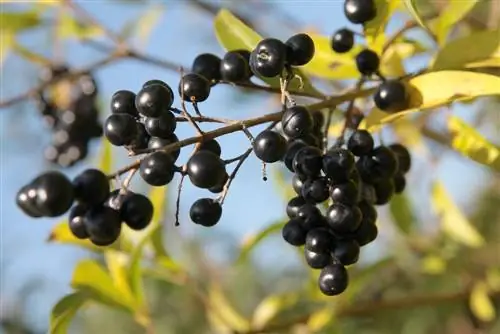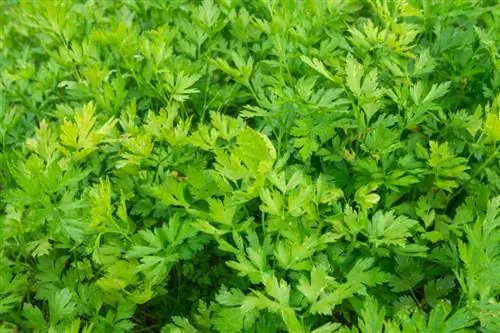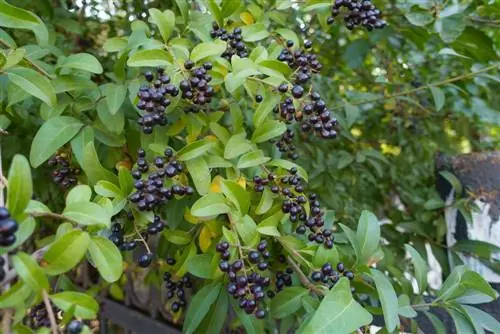- Author admin leonars@hobbygardeners.com.
- Public 2023-12-16 16:46.
- Last modified 2025-01-23 11:22.
With its green-yellow leaves, fragrant flowers and small, round berries, the golden privet attracts a lot of attention. Small children may be tempted to explore more closely. Can your curiosity have life-threatening consequences?

Is golden privet poisonous to people and pets?
Is the golden privet poisonous? Yes, golden privet is poisonous, especially the small black berries. The plant contains glycosides, which when consumed can cause unpleasant symptoms such as nausea, headaches and stomach cramps. Even small amounts can be dangerous for children, people with heart and circulatory problems and pets.
Ingredients
The ingredients of golden privet are not completely certain. In this context, some sources speak of the three glycosides syringin, ligustroside and oleuropein. However, most statements about the toxicity of golden privet are based predominantly on experience.
Poisonous plant parts
All parts of the plant visible above ground can be classified as poisonous. While the bark and leaves are considered slightly poisonous, the concentration of toxins in the small black berries is higher. But they are particularly seductive for small children.
Tip
Cut back the privet in good time so that no berries can ripen. If there is no risk of danger, they can and should stay on, because they are a delicacy for many bird species.
Be careful when cutting
If you just touch the leaves of the golden privet in passing, you have nothing to fear. But if you have this fast-growing plant in your garden primarily as a hedge, you have to cut it often. Numerous small leaves are cut in half. Direct skin contact can cause skin irritation in sensitive people, which is why wearing gloves (€9.00 on Amazon) is advisable.
Poisoning symptoms
Eating 10 berries is considered safe. Larger amounts can result in some unpleasant symptoms:
- Nausea
- Headache
- Stomach cramps
- Vomiting
- Skin inflammation
However, even smaller amounts can be dangerous for small children and people with heart and circulatory problems. The danger is even greater for pets. For them, eating just a few berries can be fatal.
Measures
Give the affected person plenty of still water to drink; this reduces the concentration of poison in the body. If you cannot confidently assess the severity of the poisoning, consult a doctor as a precaution.






